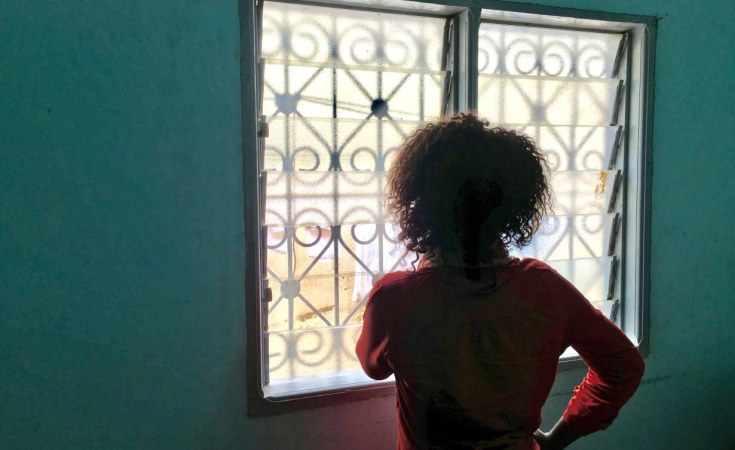On the International Day against Homophobia and Transphobia, a gay man from Cameroon speaks out about how homophobia forced him to live a lie and flee his community.
At the age of 25, Keith* realised he was attracted to men. But he could not share his feelings with anyone because homosexuality was considered as 'taboo' and something 'not normal' or 'against nature'. He says: "I was feeling ashamed and guilty. At the same time I could not confide to anyone. I was feeling very lonely."
In Cameroon, as in many African countries, homosexuality is not accepted by the majority of the population. People who are openly gay, or suspected of being gay, are victims of homophobic acts. Indeed, in July 2013, prominent gay rights activist Eric Lembembe was found dead, having been tortured. People who engage in same sex relationships are victims of abuse, generally through mob violence, and are also discriminated against under the law.
Human Rights Watch, in its report Guilty by Association, says: "Cameroon prosecutes people for consensual same sex conduct more aggressively than almost any country in the world."
Homophobia and fear
As a result, gays and lesbians live in fear of being discovered. Keith met Christian*, a young man with whom he had a relationship, at university. Though he was happy to have found someone he loved and who loved him, at the same time he was scared of their relationship being discovered.
"I was happy in my relationship but there was always that fear that we could make a mistake and someone would find out," he says. "We were not in peace. We felt like prey hiding from a predator."
When Keith disclosed his homosexuality to his parents, his mother cried and his father told him he would disown him if he did not forget this "thing".
Keith says: "When they said that, I could not bear the pain I felt and also the anger of not being accepted as I was. I used to think your parents are your first supporters but I realised this was not applicable to everybody. In my case, my parents were my supporters only as long as I fitted in their box."
Out of fear of being denounced, Keith begged his parents for their forgiveness and promised to change. One year later he was married.
Forced to live a lie
During his ten years of marriage, Keith remained in a relationship with Christian, who was also married. For him this was a torture.
"I had to lie to everyone, my wife and my kids. I just wanted to be me but I knew I could not, because I was not allowed to. Society had decided for me and I was not strong enough to stand up for who I am. I just had to fit its criteria in order to be accepted."
In 2004, his wife was diagnosed with HIV following a prenatal test. A week later Keith also took the test and discovered that he was also HIV positive. He decided to reveal his homosexuality to his wife. As a result his wife left his house and took the children away from him. She also told their parents and friends about him being gay. This left Keith isolated.
He says: "I was so lonely and began to face verbal abuse. People would call me names such as fag, criminal and demon. Some people even told me I would go to jail. I was constantly afraid police would knock at my door and take me away. One day I was taken to a police post because, according to them, I was spreading HIV. They wanted to take my blood and prove I was HIV positive. I got released because I knew the chief of the post. I had to move to another place."
Silencing gay people
Keith is now 54 and lives in the United States. He doesn't have any news from his family and children and recently heard that his wife passed away in 2006. He holds society responsible for the pain he felt during these years.
He says: "Society is the main closet that tries to set us as it wants. And if you want to live the way you feel, you're pointed at."
On the International Day against Homophobia and Transphobia, Keith hopes his country will become more aware of the wrongs it does to people in same sex relationships. For him homophobia is a way of silencing gay people.
He says: "Homophobia is people telling you that you don't have the right to live because you're different. They deny you your right to be just because you're not like them. They just silence you. I find it hard to be patient to explain to our society that I am just trying to live my life my way! That's all."
*Names changed


